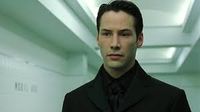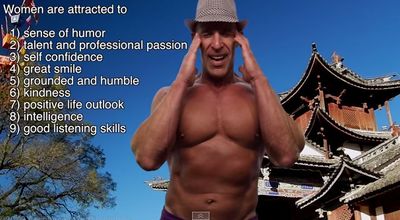Bluepill
The bluepill is pill jargon for unquestionably accepting what the normie fakestream media, similar conventional sources, and associated platitudes (i.e. chadsplaining) have to say about the dating scene. A bluepiller is someone who holds bluepill (i.e. fakestream) beliefs; bluepillers are also referred to the manosphere as "the unwoke".
The bluepill has developed to mean an inability to see nuance, a belief in the just-world fallacy, accompanied by virtue signaling, being unenlightened to the unpleasant realities of the world—thereby maintaining the status quo and their argumentum ad populum proposition. It is the preference of believing in comforting or convenient tropes, especially when it concerns a person's world view, with emphasis on the pretense or opinion that goes contrary to the research suggesting physical attraction plays an utmost role in social or sexual situations. Naive optimism is therefore a characteristic trait of bluepill. Bluepillers often interchange cause and effect by believing misfortune is the result of a negative outlook on life, not the other way round. A specific example of this mindset is the pseudo-scientific, superstitious law of attraction theory found in New Thought books like The Secret and The Power of Your Subconscious Mind, both of which temporarily influenced Elliot Rodger, who then thought he could win the lottery by strongly believing in it,[1] which however never happened.
Although the bluepill and redpill are opposites, they do not necessarily equate to opposite political/social positions. Concerning their belief that the individual has huge control of the outcome of events in his life, bluepillers are often (unintentionally) similar strong advocates of neoliberalism as redpillers, though many of them might disagree with this because they are SJWs. Since a lot of them are SJWs, bluepillers usually believe however, unlike redpillers, in social constructionism and reject pickup artistry as something "reactionary" and "far-right". The divergence pertains to how one has reached those positions. However, being bluepilled is typically one's original belief system, i.e., the one you were brought up with. As such, bluepilled views in, let's say a liberal pocket of Western Europe, are not the same as bluepilled views in the deep south of the United States. In laymen's terms, being bluepilled means being unable to produce original thoughts and a mindset that favors rehashing established ideas that have already been relayed to said person.
Other important traits of bluepill are focusing on actually or supposedly positive aspects of something negative or ignoring negative aspects of life entirely. Therefore, coping is widespread within bluepill thought.
For a dating-specific slant of what the bluepill represents, see bluepillsplaining.
Linguistics[edit | edit source]
Lexicology[edit | edit source]
Upon the shutting down of some formerly purplepilled incel forums and websites in the 2000s and 2010s (see incelosphere timeline), and the influx of men from various male-dominated forums, the definitions of the incel and androsphere blue/red pill began to converge somewhat and remains in flux till this day.
Merely rejecting the narrative of the bluepill, makes one "ex-bluepilled," "nonbluepilled," or purplepilled. However, actively opposing the bluepill, means you may fall into any of the other pills (see pill jargon). Someone who exhibits bluepilled thought processes is a bluepiller or sheeperson, a term derived from sheeple, a term which itself has a lot in common with the bluepill. A person who gets subjected to the bluepiller's promulgation and is credulous enough to be affected or influenced by it is called a bluepillee.
In the manosphere, the definition of bluepill extends to feminism and naive romanticism in regards to the bluepilled individual's perception of human sexual behavior.
Etymology[edit | edit source]
The modern iteration of the term "bluepill" comes from the 1999 film The Matrix largely reflected in its protagonist Neo. In the film, the bluepill describes the perception of plugged-in members of the Matrix, people who are unaware that they live in a computer-simulated world. The antonym to bluepilled people is those who live on the hover ship called Nebuchadnezzar, which is captained by Morpheus, a character played by Laurence Fishburne, who has instead taken the redpill. These people are no longer plugged in, and as such can see what the real world looks like rather than the "world that has been pulled over your eyes to blind you from the truth ... that you are a slave Neo. Like everyone else, you were born into bondage. Into a prison that you cannot taste or see or touch. A prison for your mind." (-Morpheus quote)
In the year 2199, those on the Nebuchadnezzar or other freed people in Zion (i.e., the redpilled resistance) constitute a small minority of the total human population. As such, the standard sense of being bluepilled is typically associated with majority or popular, yet myopic viewpoints. As such, definitions of "bluepill" that stick to its etymological origins tend to extrapolate from the entirety of the plotline of the film "The Matrix," including the introduction and exposition. For example, the intro and expositions to the film repeatedly show Neo has an inkling that something is not quite right with the world, even while plugged in, but he doesn't know exactly what that intuition entails. This is in stark contrast with the rest of the plugged-in populace who go about their daily lives as if nothing is happening. Neo's inquisitiveness about the strangeness of the world stands in stark contrast to other people who view the simulated reality as real, an archetype that can be summarized by the following quote from Trinity to Neo: "I know what you've been doing... why you hardly sleep, why you live alone, and why night after night, you sit by your computer. You're looking for him. I know because I was once looking for the same thing. And when he found me, he told me I wasn't really looking for him. I was looking for an answer. It's the question that drives us, Neo. It's the question that brought you here".
A line by Cypher in the same film indicates that for some people, non-truths are more palatable than truths, i.e., through the line he communicates to Neo: "I know what you're thinking, 'cause right now I'm thinking the same thing. Actually, I've been thinking it ever since I got here: Why, oh why, didn't I take the Blue pill?" When coupled with his sentence a few scenes later wherein he says "ignorance is bliss," it is clear that some people are not brave enough to face the harsh realities of this world. Similar to Cypher, they would rather that complicated or difficult obstacles be wished away so they could continue to live in their fairy-tales. The plot of the film later reveals that Cypher defects from the resistance in the hope of being plugged into the fake virtual world again.
Over the course of the 2000s, frequenters of the incelosphere began seeing two discordant views begin to develop that seemed somewhat analogous to the contrasting view of perspectives between redpillers and bluepillers in The Matrix. Thereby, the term bluepill began being used to signify a worldview that aligns with the just-world hypothesis, feminism, platitudes, the mainstream media, and cliche viewpoints. On the other hand, for many omega males, the redpill began to signify having abandoned or being "woke" from these beliefs, which in the androsphere had supplementary beliefs such as women being privileged in modern society began gaining a foothold.
Economic systems[edit | edit source]
The dominant economic systems in place in the world today are somewhat designed to ensure a narrative that leans bluepill. With the capitalist system, the media is coerced to be engrossing. When coupled with the inevitable and inherent gutsy nature of mass printing, the natural human emotion of vacillation is forced to take a backseat. The contrasting economic system of communism and its effects on mass media probably doesn't fare much better. However, most studies on these economic systems focus on their effects on the nations GDP, and on socioeconomic status. Most books on socialism, capitalism and communism will be tagged with phrases such as "standard of living" or "HDI" which means "Human Development Index". Space devoted to the economic system's effect on media is usually negligible and certainly not comprehensive. Although in terms of nominal GDP, capitalism is arguably a better system for growth than communism, if there were a way to stifle growth-obsession in a graceful manner, then that system would arguably work best to stifle the bluepill-inducing modus operandi of the modern western MSM (mainstream media).
There are byproducts to the tendency of being gullible enough to swallow the MSM message wholesale. These include taking on characteristics typically associated with the MSM, such as deliberate sensationalism, a peculiarity that forces the journalist to engage in broad-brushing and pigeonholing in a scrupulous revenue accumulation attempt aimed at their unsuspecting patronage. That's one of the reasons why bluepillers are much more prone to pigeonholing than the rest of the population - a direct spawn of MSM behaviour. This propensity for pigeonholing is what makes the bluepilled mentality so dangerous, and as such bluepillers may be recognizable by their susceptibility to broadbrushing, pigeonholing and voicing the argumentum ad populum fallacy. This otherizing behaviour can precipitate into various forms of mental illness, including mentalceldom.
Perception[edit | edit source]
The robocracy and cybernetic rule within the film is seen in the incelosphere and manosphere as a metaphor for the mainstream media. Normies in the real world and the characters in the Matrix who take things at face value both have a tendency for conformity and succumbing to the clout of mass media technology. The normies within the Matrix world seem to have a proclivity for being artificial rather than organic. These bluepills regurgitate the inbuilt programming of the AI whom seek to nurture within bluepills what it considers to be normal behaviour. This sheeple-like behavior is referred to as "bluepilled."
Voicing opinions that contradict the conventional narrative takes courage because you are confronting the beliefs and opinions of the majority of society. That's why some purplepillers, redpillers and blackpillers may view bluepillers as cowards, weaklings, and sissies; because they have an almost stupendous fear of being politically incorrect. Whereas some bluepillers genuinely believe in all the tenets of bluepill, there are other bluepillers who are not so easily influenced to uncritically accept society's mores. This second subset of bluepillers espouses bluepilled viewpoints in an attempt at virtue signaling. Besides these two archetypes within the bluepilled community; the former, the type of person who has drunk the kool-aid; and the latter, the virtue-signaling type, there is also a gender-specific bluepiller: see the gender section for more info.
Neo's trajectory[edit | edit source]

Although during his Thomas Anderson persona is semi-bluepilled, his alter ego Neo gradually becomes more and more redpilled. The protagonist in the film, Neo, was always suspicious of bluepilled life, he nonetheless remained (sort of) bluepilled in the early segments of the film, which can be ascertained by certain statements he made such as "You ever have that feeling where you’re not sure if you’re awake or still dreaming?" after meeting Choi at his apartment. He made this statement after Trinity gave him his first redpill clue by transmitting a hacked message to his screen; Neo's response suggesting that the redpill clue was otherworldly hence was dreaming suggests he remained bluepilled. His mental breakdown after receiving the redpill from Morpheus, including the statement "I don’t believe it. It’s not possible" suggested that even during his redpill transformation, he was somewhere between bluepilled and redpilled; i.e. purplepilled.
Gender[edit | edit source]
There is a common belief in the manosphere that more often than not, the main purveyors of bluepilled ideas are women. These manospherians argue that this is the case because males have a tendency of obscuring reality under stoicism, or otherwise letting manifest itself out in the open. These proclivities mean that males have a natural inbuilt mechanism (or at least experience) for the perception of shrouded phenomenon; this is in contrast to women for whom their open-ended mingling means an eventual aloofness to their own solipsism, an undue confidence in the correctness of their own social positions, as well as an imperceptibility of the extent of their own verisimilitude.
- Relevant idiom: "Having an inability to see the forest for the trees."
Women are more likely to be bluepilled than men. Men who have been raised in a matriarchal environment are also more likely to be bluepilled than other men. A bluepiller who is male is often called a simp, short for "sucka idolizing mediocre pussy," or white knight.
In femcel online communities, they also use terms such as bluepilled with similar meaning. There, it often refers to banal media depictions that have been aimed at girls from a young age; such as romantic Disney novels or films.
One of the causes of the counterculture developing, especially amongst men, is that the bluepill is apathetic or selective with regards to Maslow's hierarchy of needs, particularly those of males.
Bluepilled characters[edit | edit source]
Morpheus labels the bluepilled people in the Matrix as the "unplugged." He describes the unplugged as "minds of the people we are trying to save," but that Morpheus and co are hesitant to do so because they are "not ready to be unplugged" primarily because they are "so inured, so hopelessly dependent on the system that they will fight to protect it." As a consequence, Morpheus describes them as "our enemy" as they could be compromised by transforming into "sentient programs," i.e., agents such as Agent Smith.
Although individual bluepilled (i.e., unplugged) characters never get much screen time, there are a few who get a modest amount of transcript oration. These include:
- Lieutenant, a high-ranking officer in (presumably) Chicago PD
- Mr. Rhineheart, the software company executive.
- Choi, a reveler/party animal/socialite.
Each of these three bluepillers had very distinct avocations, and the directors of the film, the Wachowskis, made sure to portray them mostly as snobby, whilst ridiculing that snobbiness. For example, the Lieutenant is pretentious towards his superiors whilst oblivious to the fact that his superior is actually a sentient computer program. Mr. Rhineheart is portrayed as compulsively obsessing over his company's finances whilst unaware that his company is actually as fictional as the Monopoly board game. Choi, the reveler, is portrayed as serene and about to consume an LSD-like drug. Choi is unaware of the paradoxical nature of using a hallucinogenic whilst already living in a dream world. This paradox goes into overdrive when he uses language such as "you need to unplug."
The analogy between bluepillers in the film and those in real life is that both accept things at face value.
As a majority/established viewpoint[edit | edit source]
As the term "bluepill" derives from the 1999 Matrix film wherein bluepillers constitute the vast majority of the population, being bluepilled often (or usually) signifies holding a majority or very prominent viewpoint, such as those pushed by fakestream. Since the bluepilled state was the initial position of most characters in The Matrix, being bluepilled in the real-world also suggests holding onto well-established attitudes and perspectives. The term has evolved to become somewhat synonymous with terms such as "normie" or NPC (non-playable character). The negative connotations of the word bluepill derive from the perceived inability of the proponent to discern the overall pattern from a mass of information being relayed by the fakestream inc. Although androspherians generally regard bluepillers as delusional by definition, they describe the most delusional bluepillers as bluepilltards.
On incel and androsphere forums, the causes behind the bluepill mentality are often discussed. In the same way that all but a few (the non-bluepilled) within The Matrix were able to see past the smokescreen of the fake world; in our actual modern society, being bluepilled can also mean being easily swayed by the exhortations of outwardly charming trendsetters or a dominant societal narrative.
Symbolism[edit | edit source]
The appeal behind extracting such symbolism from the 1999 film The Matrix among those experiencing inceldom lies in the fact that comparable parallels can be drawn with the situation faced by omega or beta males. Similar to how computer hacker Neo is portrayed as a loner, most omega males have a similar introvertedness. The way in which Neo later teams up with other redpilled resistance fighters who presumably also started out as loner computer nerds is similarly cognate with the portrayal of modern stereotypes of the cybercel. Similarly to how modern incels almost exclusively communicate with one another online, the unplugged in the Matrix also communicate with one another exclusively through telecommunications devices. The opening scene wherein Trinity expresses consternation at her phone line being traced is similar to how many modern permavirgins fear being outed as incompetent at romance. The recurring scenes wherein the anti-AI resistance is beset by AI bears similarity to how romantically inexperienced men are bullied or mocked with terms such as "virgin" or "frigid" or the teratophobia, lookism and cacophobia faced by ugly people. The scene wherein the unplugged visit the all-knowing Oracle is similar to how involuntary celibates often seek the counsel of online vloggers. Neo's failures in the various physics-defying training constructs and sparring programs with Morpheus hint suggestively at the way many undateables frequently fail to ascend from inceldom after appointments with dating coaches. The interrogation scene where agent Smith seals the lips of Neo is similar to how modern society frequently gestures that incels should stop whining about loneliness at worst, or at best is apathetic about it. The bland look on Neo's face whilst working his nine-to-five job at the office for a software company is akin to how single male tax-payers often feel finessed at having to pay for the bastard children of promiscuous single mothers. The Spoon Boy is a pre-tween redpiller who lived with the Oracle; his wunderkind abilities bears a resemblance to how several members of the incelosphere claim to have been blackpilled about their omega nature from a young age; even before attempting to date. The flirtatiousness of the Woman in the Red Dress scene and her sudden transformation into a simulated agent parallels the real-life dangers of attempting to pursue one's oneitis. The emotional reunion of Neo and Morpheus whilst jumping off a helicopter and skyscraper respectively resembles how loveshy loners sometimes attempt to console one another online. The nonchalant conversation in the opening scene between Agent Smith and a plugged-in/bluepilled police officer who is unaware that he's actually speaking to an AI agent whilst being an organic POW is similar to how the modern average Joe seems to be inattentive about the extent to which they are brainwashed by MSM. Neo's attempt to exit the car and go back to his bluepilled life after refusing Trinity's attempt to remove the robotic bug probe from his abdomen resembles how many real-life blackpillers attempt to return to being a normie. Neo's transformation from a fugitive running for his life, to a superhuman who can dodge bullets, is consonant to the fact that despite how thirsty virgins are viewed by society as pathetic, sexless virgins are sometimes proficient and valuable members of society. The deja-vu during the black cat scene can evoke reminiscence to the repetitiveness and familiarity of being friend-zoned for the typical truecel. The scene where agent Smith destroys a telephone booth using a truck is similar to attempts by an SJW activist to deplatform incel websites.
In conclusion, the transformation of The Matrix from an ordinary film to a viral meme among those experiencing inceldom did not occur coincidentally. It happened because the archetypes, retro scenery and film plots subconsciously evoked evocations that modern redpillers and blackpillers recall from their own lives.
Overview[edit | edit source]
Bluepillers generally believe that personality and confidence are the most important factors in attracting women in 2019. They usually reject notions such as the halo effect or widespread hybristophilia. The polar opposite of the bluepill is the redpill.
The term bluepill was coined in the film The Matrix by Laurence Fishburne who starred as Morpheus. Although the synopsis of the film fails to mention it, bluepilled philosphy was actually a central theme in the film. For example, the plot of the film claims that Joe Pantoliano, whilst starring as Cypher had initially embraced the red pill. Cypher initially wanted truth over fiction, even if that truth might have been uncomfortable. After Cypher learns the truth, he gradually becomes more and more uncomfortable with it. It gets to the stage where Cypher regrets that he had taken the red pill. This culminates into Cypher eventually siding with the enemy of the redpillers in an attempt to return to his bluepilled state. He does this by striking a deal with intelligent machines to collaborate with them in apprehending redpillers in exchange for returning him to his previously blissfully ignorant state; i.e., become bluepilled.
Interjections[edit | edit source]
Being bluepilled does not necessarily equate being unintelligent. In fact, on occasion, the bluepillers' firm grasp of social cues, brilliant command of their native language and a satisfactory comprehension in various scientific disciplines in combination may make it seem that their propositions are on firm footing or make them seem clever. In a nutshell, being bluepilled means voicing opinions with the subconscious intention of pleasing your demographic or repeating a mantra that is influenced by that demographic.
Likely[edit | edit source]
Bluepillers are more likely to concur with the following positions:
- "I prefer going with the status quo"
- "the world as it stands is fair."
- "I Believe that 21st-century dating is a meritocracy"
- "its the patriarchy"
- "The argumentum ad populum proposition is valid"
- "cliches popularized in modern western popular culture are a valid source of information"
- "Just be confident bro!"
It is likely that bluepillers use discourse that follows the following narratives:
The debating style of bluepillers can befittingly be encapsulated by looking at their communicative styles, which commonly consist of things such as mottos, slogans, sound bites, one-liners, and cliches. From the viewpoint of the bluepilled, such one-liners are sufficient and do not require peer-reviewed additional evidence, because many others believe likewise. A bluepilled person, when faced with a room full of 40 people wherein 30 of those 40 (i.e., 75%) voice the same opinion, will nod his or her head in agreement with the 75%. In a sense, such a thought process is demeaning to human individuality as it normalizes the essence of the word sheeple. Swallowing the bluepill may also obstruct the flow of constructive dialogue.
Bluepillers consider off-gridders to be weird and haven't even thought about going off-the-grid themselves.
Unlikely[edit | edit source]
Bluepilled people are less likely than redpilled people to use forms of reasoning that may challenge the concurrent narrative, that conveys deep inquisitiveness and probing scrutiny, such as:
- "this has/has no precedence in ..."
- "I have been consistent in this on a wide range of topics."
- "I have researched this topic to the point of queasiness."
- "I was attempting to look at this topic from a neutral point of view."
- "I managed to put my personal feelings on this to the side."
- "I am prepared to accept an uncomfortable finding as truth, even if this truth makes me feel uncomfortable."
- "could that report have been influenced by financial or some other personal desire?"
- "each and every single one of my beliefs could be wrong."
- "I refuse to engage in broad-brushing generalizations."
- "pigeonholing entire communities is bad."
- "presuming to know other people's experiences vicariously is myopic and a sign of narcissism."
- "could there be any tertiary consequences to such a state of action?"
Antibluepillers[edit | edit source]
People who opposed the bluepill philosophy are sometimes called antibluepillers. Since the blue pill is another word for blissful ignorance, the anti-bluepill stance could also be called anti-blissful ignorance. One of the bluepilled contentions that antibluepillers oppose is its ignorance of the importance of time. For example, the bluepilled stance is deeply opposed to enforced monogamy or looksmatching and would rather society operates on a free-market dating system. From the antibluepillers' point of view, this has negative side-effects since it leads to various by-products such as the various hypergamy models, such as branchswinging or the 666 dating rule. It's not only those on the inceldom-spectrum who are affected by this. As male low-tier normies are also expected to be the initiators of relationships, as such, in the modern era, even they waste a significant amount of energy and time in this pursuit. This wouldn't only negatively affect men who have a low SMV. Wider society is also negatively affected by this because some men will claim that this system defies CBA (cost-benefit analysis) and turn to NEEThood (avolitionism) or other abject lifestyles.
Pussypassers[edit | edit source]
Antibluepillers also tend to express opposition to pussypassers. Pussypassers are bluepillers who are fine with women getting an advantage over men just by owning a vagina. Some of these advantages include getting lighter prison sentences, more custody of children, vagimony, etc.
Peter pan generation[edit | edit source]
For antibluepillers, it is not a coincidence that men and boys in the 21st century have been labeled the peter pan generation. Men and boys seem to be unwilling to grow up. But nobody's asking why. From a redpiller or antibluepillers' point of view, the reason seems obvious. If you indirectly promote procrastination by turning a key life milestone such as romantic relationships into a jigsaw puzzle, it will mostly affect males because they're the ones who will need to spend more time and energy chasing tail.
From the antibluepillers' point of view, the bluepilled stance is sort of like the take of recreational drugs policy. It may seem progressive to give people full discretion over drug-use and seem draconian to prevent self-determination on what others do with their own bodies. But at the end, even the most open-minded progressive will say that permitting start-ups to open corner shops that sell the full range of crystal methamphetamine, LSD, cannabis, heroin, and cocaine might have detrimental side-effects on society.
See also[edit | edit source]
Bluepill | |
| Articles |
Bluepill • Bluepillsplaining • Prove the Incel Wrong! • Cyanpill • Fakestream • Oofy doofy theory • Squirmy and Grubs • Confidence • Personality • PUA • Inceldom denialism • Broad-brusher • Individual solution reductionists |
|---|---|
References[edit | edit source]
- ↑ Elliot Rodger: My Twisted World. The Story of Elliot Rodger, Isla Vista 2014, p. 106.





